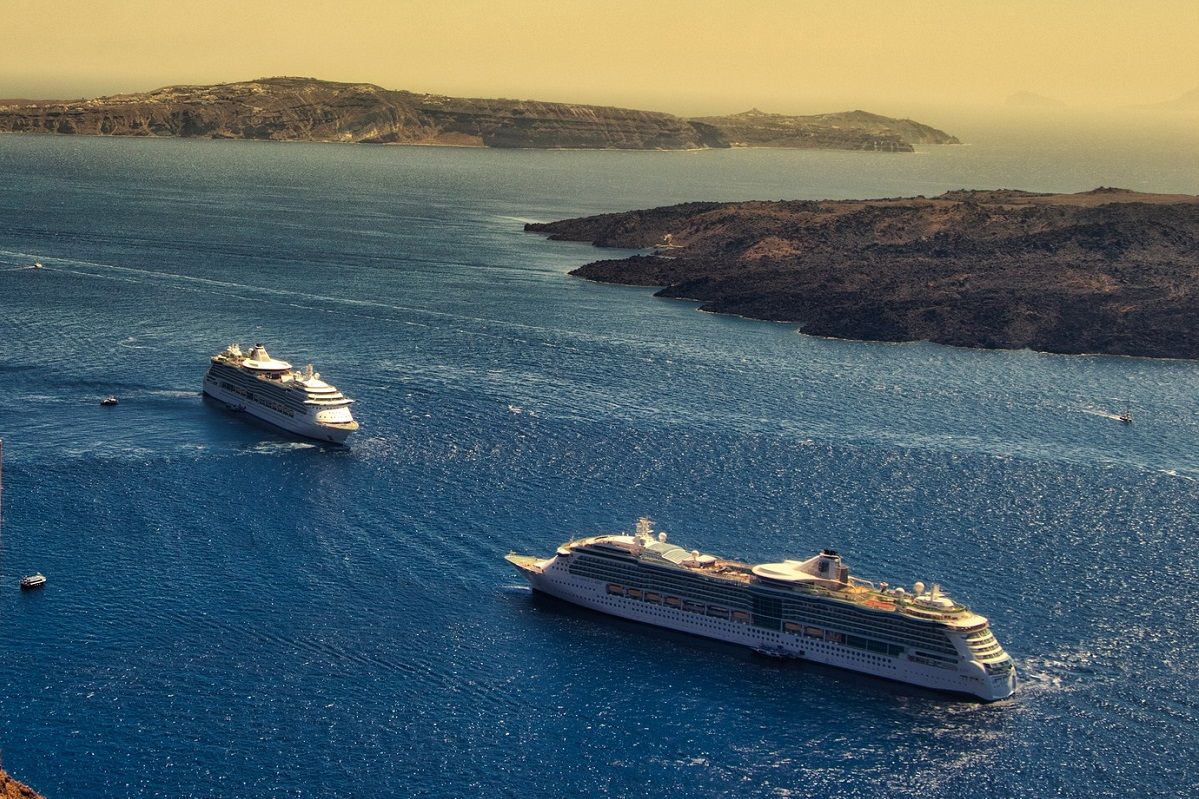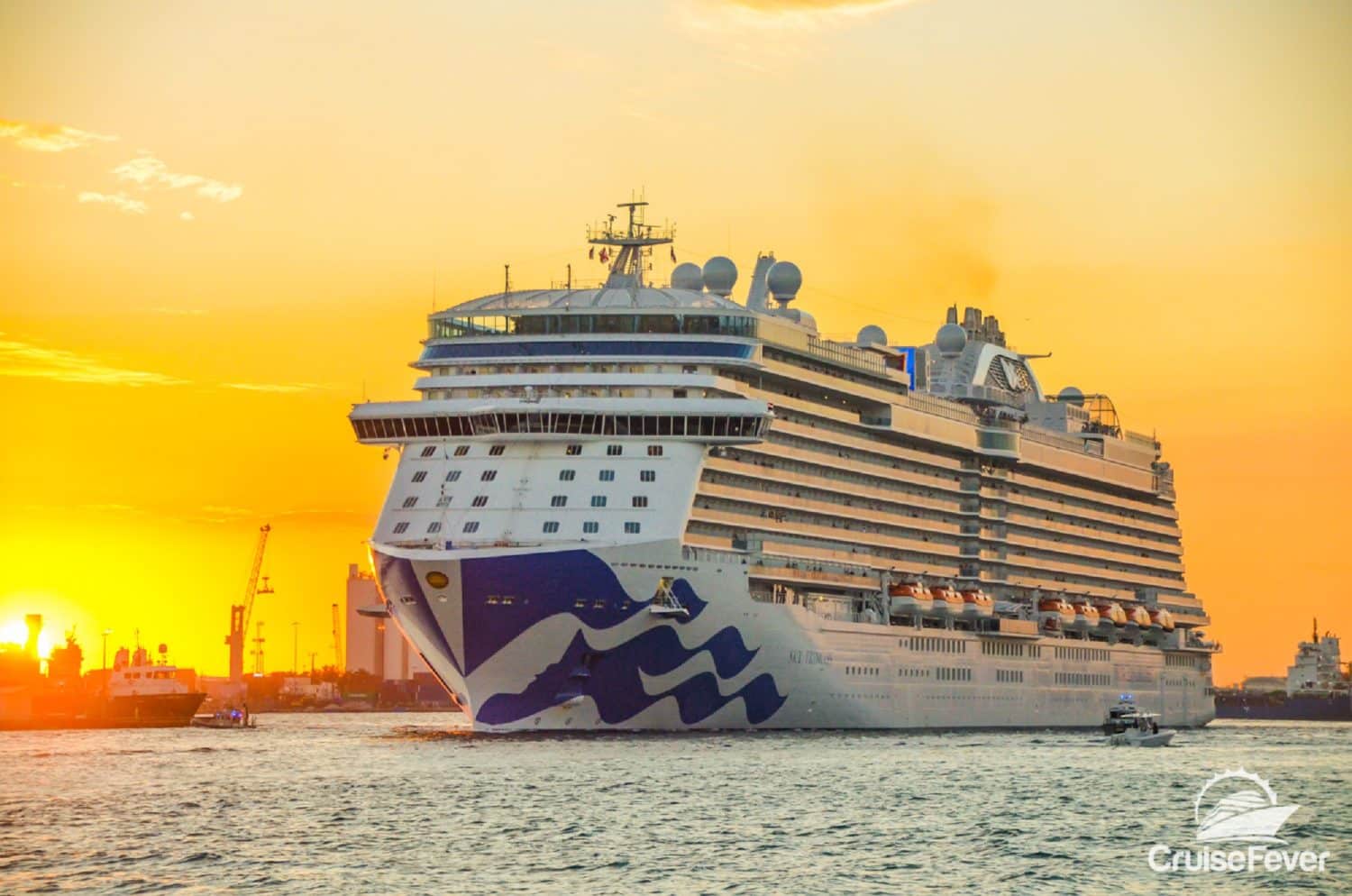Table Of Content

Intent to cruise is also strong, with 82 percent of all previous cruise guests reporting that they will cruise again—a 6 percent increase from 2019. "Cruise continues to be one of the fastest-growing and most resilient sectors of tourism— rebounding faster than international tourist arrivals—and a strong contributor to local and national economies,” says Kelly Craighead, CLIA’s president and chief executive officer. While CLIA strives to adhere to the advice of local, national, and international health authorities, any interaction with the public poses an elevated risk of being exposed to COVID-19 and we cannot guarantee that you will not be exposed while in attendance at the event. We encourage you to practice the best personal mitigation strategies that are available, like getting vaccinated, wearing masks while indoors with others, and washing your hands often. If you need more direction, please consult your national and local health authority websites for up-to-date recommendations.
On Site at Cruise 360: Generation Shift, Fleet Growth and More - Travel Agent Central
On Site at Cruise 360: Generation Shift, Fleet Growth and More.
Posted: Fri, 19 Apr 2024 14:30:39 GMT [source]
News Releases Overview
For more information, please visit cruising.org or follow us on Facebook, Instagram, Twitter, and YouTube with our handle @CLIAGlobal—or on LinkedIn. CLIA is the world's largest cruise industry trade association, providing a unified voice and leading authority of the global cruise community. On behalf of its members, affiliates, and partners, the organization supports policies and practices that foster a secure, healthy, and sustainable cruise ship environment, promoting positive travel experiences for the more than 30 million passengers who have cruised annually. CLIA represents 95% of the world’s ocean-going cruise capacity, as well as 54,000 travel agents, and 15,000 of the largest travel agencies in the world. Examples of progress cited include the number of alternative fuels pilot programs and trials currently in place with cruise ships. In addition, an increasing number of vessels sailing and launching over the next five years will either use alternative fuels or will be able to incorporate zero carbon fuels when they become available.
The report highlights how member cruise lines and ports are reducing emissions
CLIA’s 2023 report has identified that 48% of new-build capacity will be designed with LNG engines and fuel supply systems. These ships are part of a future generation of vessels that will be capable of running on renewable marine fuels once fuel providers are able to make them available at scale. “Cruise lines continue to transform the modern fleet to protect the oceans, air, and destinations enjoyed by millions of passengers each year. Our data shows a step change in the uptake of new environmental technologies by our cruise line members,” said Kelly Craighead, CLIA’s President and CEO.
Nine Things You Need to Check Before Your Cruise
"Our industry is committed to pursuing net carbon neutral cruising by 2050, and CLIA and our ocean-going members are investing in new technologies and cleaner fuels now to realise this ambition." The 2023 study also shows other substantial investments cruise lines are making to cut emissions at berth and at sea—including shoreside electricity (SSE), which allows cruise ships to switch off engines in port, resulting in significant carbon reductions. "This report shows that the cruise industry is resilient, innovative and focused on the future" said Pierfrancesco Vago, Chairman of CLIA Global.
About the Cruise Lines International Association (CLIA)CLIA is the world's largest cruise industry trade association, providing a unified voice for the industry as the leading authority of the global cruise community. On behalf of its members, affiliates and partners, the organization supports policies and practices that foster a secure, healthy, and sustainable cruise ship environment, promoting positive travel experiences for millions of travelers who cruise annually. This year, CLIA forecasts that annual the number of passengers will reach 31.5 million passengers—surpassing 2019 levels. The organization's global headquarters are in Washington, DC, with regional offices located in North and South America, Europe, and Australasia.
Duffy was honored at the 2024 CLIA Hall of Fame Cruise Industry Awards, where she was inducted into CLIA’s Hall of Fame and introduced by Josh Weinstein, president, chief executive officer and chief climate officer of Carnival Corporation, the company said in a statement.
Carnival Cruise Line President Christine Duffy Honored with CLIA's Lifetime Achievement Award
The cruise line’s first woman president, Duffy leads over 48,000 Carnival Cruise Line team members who deliver memorable cruises to more than 5.5 million guests annually. Duffy is at the helm of all operations across Carnival’s fleet of 27 ships sailing from 14 U.S. homeports and two homeports in Australia, where she also oversees the operations of three ships that sail for P&O Cruises Australia. CLIA is forecasting that global cruise capacity will grow at least 10 percent—from 677,000 lower berths in 2024 to 745,000 lower berths in 2028. Renewable fuels and alternative energy sources – Various CLIA member lines are trialing, using, and incorporating into new-build ships the capability to run on renewable fuels, including biofuels and synthetic carbon fuels.
A Growing Number of Travelers Are Cruising For the First Time
CLIA member cruise lines have committed to a 40% reduction in the rate of carbon emissions across the global fleet by 2030, compared to 2008, consistent with the International Maritime Organization's (IMO) carbon intensity reduction level of ambition. For the first time, CLIA released a new skills and workforce report called “An Ocean of Opportunity.” It finds that cruising is an especially attractive industry for women, with 94 percent of women seafarers working in the cruise industry. Please allow at least 10 minutes to receive the email before requesting another password reset. John Lovell, president of Travel Leaders Group, was also awarded a lifetime achievement award at the event.
Contact PR Newswire
The CLIA community includes the world's most prestigious ocean, river, and specialty cruise lines; a highly trained and certified travel agent community; and widespread industry stakeholders, including ports & destinations, ship development, suppliers, and business services. CLIA represents 95% of the world's ocean-going cruise capacity, as well as 54,000 travel agents, and 15,000 of the largest travel agencies in the world. The organization's global headquarters are in Washington, DC, with regional offices located in North and South America, Europe, Asia, and Australasia.

On behalf of its members, affiliates, and partners, the organization supports policies and practices that foster a secure, healthy, and sustainable cruise ship environment. Travel Association, the national, non-profit organization representing all components of the travel industry, from 2020 to 2022. As the first woman to lead CLIA, she elevated the industry’s profile before consumers, regulators, industry stakeholders and the media.
A new environmental data report from Cruise Lines International Association confirms progress in the cruise industry’s uptake of new environmental technologies. The CLIA study revealed the future of the cruise industry is the younger generations, with GenX and Millennials being the most enthusiastic about planning a voyage. Younger travelers are also using travel advisors to book cruises at a higher rate than other generations. Cruise Lines International Association (CLIA), the leading voice for the global cruise industry, announced the promotion of Donnie Brown to Senior... Alternative fuel sources to heavy fuel oils being developed include biodiesel, methanol, ammonia, hydrogen, and electric batteries. The report notes that there remain engineering, supply, and regulatory hurdles before the large-scale adoption of such fuels can take place, but the cruise industry's growing investment in new ships is facilitating the research and development of these fuels.
The cruise industry continues to be one of the fastest-growing tourism sectors, jumping from 29.7 million in 2019 to a predicted 36 million by 2024, 37.2 million by 2025 and 39.5 million by 2027. Efficiency tracking systems are now in use on 171 CLIA-member ships, representing 60% of the global fleet, with many more systems planned. Carnival Cruise Line President Christine Duffy received the Cruise Lines International Association’s Lifetime Achievement Award for 2024 for her contributions to cruise travel. Over the past two years, 27 percent of travelers are new-to-cruise, which represents a 12 percent increase from the past year.
Additionally, shouldbecruising.com participates in various other affiliate programs, and we sometimes receive a commission from purchases made through our links. Plugging into SSE can reduce emissions by up to 98% while a ship is in port, according to studies conducted by a number of the world’s ports and the U.S. Data also showed that 60 percent of the ships scheduled to debut between 2023 and 2028 would rely on liquefied natural gas (LNG) for their primary propulsion. Advanced Wastewater Treatment Systems – As part of their overarching sustainability focus, cruise lines have committed to not discharging untreated sewage anywhere in the world, during normal operations.
Duffy also spent 10 years at Maritz Travel Company, the world’s largest corporate meeting, events and incentive travel company where she became the company’s first woman president and CEO. Travel during the financial crisis of 2008, raising awareness about the importance of business travel and solidifying support in Washington. Her leadership led to a number of initiatives, including the first-ever public/private partnership to promote international travel to the U.S. creating what is known today as Brand USA. Throughout her career, Duffy has been a strong supporter of women’s leadership in the travel industry, leading initiatives that delivered research and programs to help women advance their careers.
Cruise lines are investing in a wide range of technologies to make their ships more efficient, including propulsion technologies with conversion capabilities for future alternative fuels. Other sustainability upgrades include advanced wastewater treatment systems, underwater noise and vibration reduction systems, water conservation systems, exhaust gas cleaning systems and more. Duffy continues to usher Carnival through rapid growth, with the acquisition of five new ships in a period of two years.
The cruise line’s fleet expansion continues with two more of its largest and most innovative Excel-class ships in 2027 and 2028. She’s also currently focused on the development of the cruise line’s new exclusive destination, Celebration Key, which opens in July 2025. Under Duffy’s leadership, Carnival became the first major U.S. cruise line to have its entire fleet back in operations after the industry-wide pause related to the COVID pandemic. Part of that restart coincided with Carnival’s implementation of Liquefied Natural Gas, with Carnival’s Mardi Gras becoming the first LNG-powered cruise ship in North America – as well as bringing cruise ship attractions to new heights with the first rollercoaster at sea.


